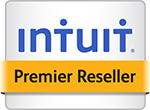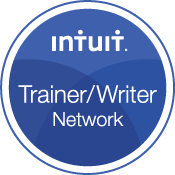Before you begin entering startup balances, make sure you have the following created in your QuickBooks data file:
- Chart of Accounts—This list is usually created automatically for you in the EasyStep Interview or the new Express Start with QuickBooks 2012.
- Items List—These are the services or products that you sell and the sales tax that you collect on these sales. See the section titled, “Using Item Types in QuickBooks,” in Chapter 3 of the QuickBooks 2010 Solutions Guide, for a detailed discussion of setting up items. Be sure to take special consideration with Inventory items. This information is detailed in Chapter 10, “Reviewing Inventory.”
- Customer and Job Names—To assign to open (unpaid) invoices.
- Vendor Names—To assign to open (unpaid) vendor bills.
- Employee Names—To assign to current year payroll
transactions. - Payroll Items—To assign for year-to-date payroll totals.
Chapter Two of the QuickBooks 2010 Solutions Guide details options that are available when you’re creating startup or opening transactions for a business for which you’re beginning to use QuickBooks, after previously using some other software or manual accounting method.
From Laura Madeira’s QuickBooks 2010 Solutions Guide












